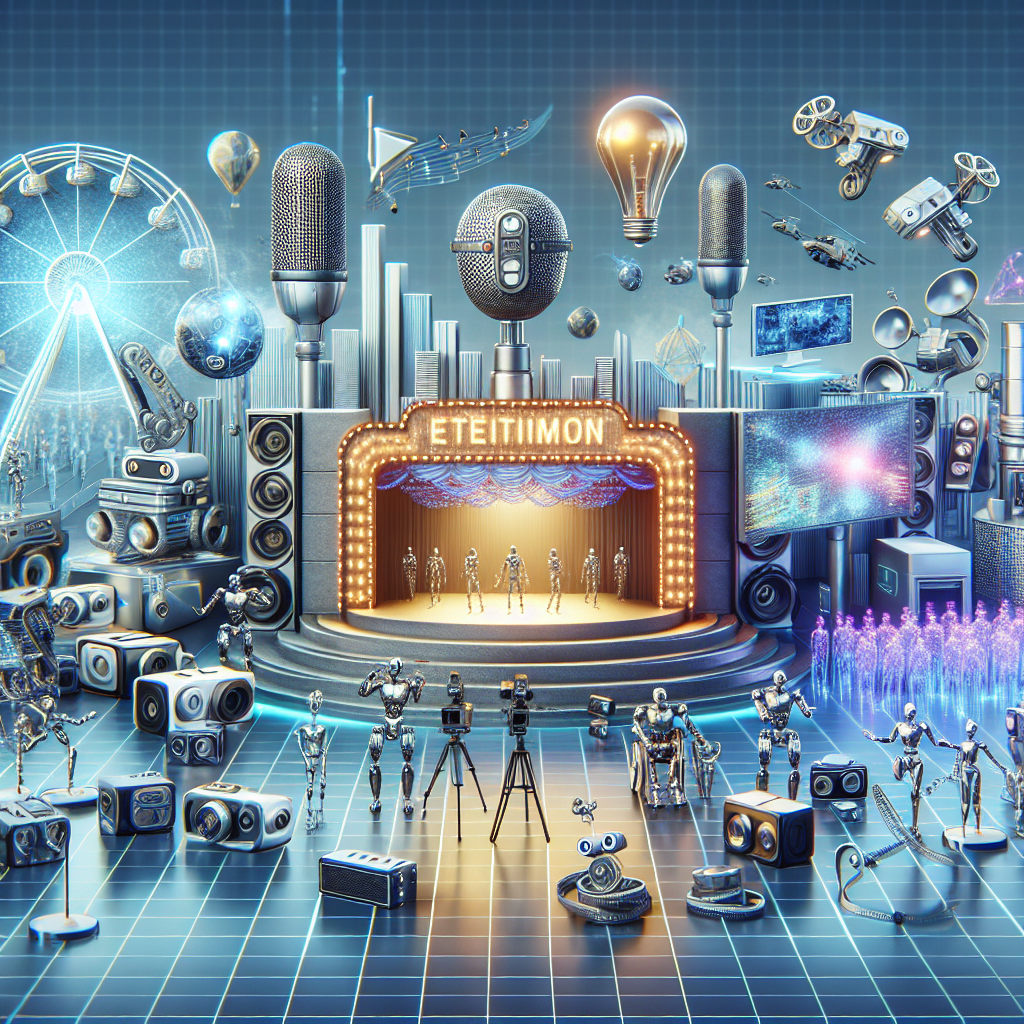The Future of AI in Entertainment
Artificial Intelligence (AI) has been making significant strides in various industries, and the world of entertainment is no exception. From personalized recommendations on streaming platforms to virtual reality experiences, AI is revolutionizing how we consume and create entertainment. In this article, we will explore the current state of AI in entertainment and discuss the potential future developments in this rapidly evolving field.
Current Applications of AI in Entertainment
AI is already being used in a variety of ways in the entertainment industry. One of the most prominent applications is in content recommendation algorithms on streaming platforms like Netflix and Spotify. These algorithms use machine learning to analyze user behavior and preferences, making personalized recommendations for movies, shows, and music. This not only enhances the user experience but also helps platforms retain customers and increase engagement.
AI is also being used in content creation, with some companies experimenting with AI-generated music, art, and even scripts. For example, OpenAI’s GPT-3 model has been used to generate text for various purposes, including writing articles, creating poetry, and generating code. While AI-generated content may not replace human creativity entirely, it can be a useful tool for artists and creators looking for inspiration or assistance in their work.
Virtual reality (VR) and augmented reality (AR) experiences are another area where AI is making a significant impact. AI-powered algorithms can create more immersive and interactive environments in VR and AR applications, enhancing the user experience and opening up new possibilities for storytelling and entertainment. For example, AI can be used to create realistic avatars, generate dynamic environments, and provide real-time feedback to users in virtual worlds.
AI is also being used in the gaming industry to improve gameplay and enhance the overall gaming experience. Game developers are using AI algorithms to create more intelligent and adaptive non-player characters (NPCs), improve game physics and graphics, and personalize game content based on individual player preferences. AI-powered chatbots are also being used to provide customer support and engage with players in a more interactive and personalized way.
Future Developments in AI in Entertainment
As AI technology continues to advance, we can expect to see even more exciting developments in the world of entertainment. Here are some potential future applications of AI in entertainment:
1. Personalized Experiences: AI will enable even more personalized entertainment experiences, with algorithms tailoring content and recommendations to individual preferences in real-time. This could include personalized movie trailers, customized music playlists, and interactive storytelling experiences that adapt to the viewer’s choices.
2. AI-Generated Content: AI will continue to play a larger role in content creation, with algorithms producing music, art, and even entire movies and TV shows. While AI-generated content may never fully replace human creativity, it can be a valuable tool for artists and creators looking to explore new ideas and push the boundaries of their craft.
3. Enhanced Immersive Experiences: AI-powered algorithms will create more immersive and interactive experiences in virtual reality and augmented reality applications. This could include realistic avatars, dynamic environments, and intelligent NPCs that respond to the player’s actions in real-time, blurring the line between the virtual and physical worlds.
4. AI-Assisted Creativity: AI will help artists and creators streamline their workflow and enhance their creative process. AI-powered tools can assist with tasks like music composition, video editing, and scriptwriting, freeing up artists to focus on the more creative aspects of their work.
5. Real-Time Feedback and Interaction: AI algorithms will enable real-time feedback and interaction in entertainment experiences, allowing users to engage with content in new and exciting ways. This could include interactive storytelling experiences where the viewer’s choices affect the outcome of the narrative, or AI-powered chatbots that provide personalized recommendations and assistance.
FAQs
Q: Will AI replace human creativity in entertainment?
A: While AI can assist with content creation and provide inspiration for artists and creators, it is unlikely to replace human creativity entirely. AI-generated content can be a valuable tool for exploring new ideas and pushing the boundaries of creativity, but ultimately, human creativity is a unique and irreplaceable aspect of the entertainment industry.
Q: How will AI impact the job market in the entertainment industry?
A: AI is expected to have a significant impact on the job market in the entertainment industry, with some jobs being automated or augmented by AI technology. However, new roles and opportunities are also likely to emerge as AI continues to evolve, creating demand for skills in areas like data analysis, machine learning, and AI programming.
Q: What are the ethical implications of using AI in entertainment?
A: The use of AI in entertainment raises various ethical considerations, including issues around data privacy, algorithm bias, and the impact on human creativity. It is essential for companies and creators to consider these ethical implications and ensure that AI technology is used responsibly and ethically in the entertainment industry.
Q: How can I learn more about AI in entertainment?
A: There are many resources available for learning more about AI in entertainment, including online courses, books, and industry events. Keeping up to date with the latest developments in AI technology and its applications in entertainment can help you stay informed and prepared for the future of this rapidly evolving field.
In conclusion, AI is poised to revolutionize the entertainment industry, offering new opportunities for personalized experiences, content creation, and immersive storytelling. As AI technology continues to advance, we can expect to see even more exciting developments in the world of entertainment, shaping the future of how we consume and create content. By staying informed and embracing these new technologies, we can harness the power of AI to create innovative and engaging entertainment experiences for audiences around the world.

